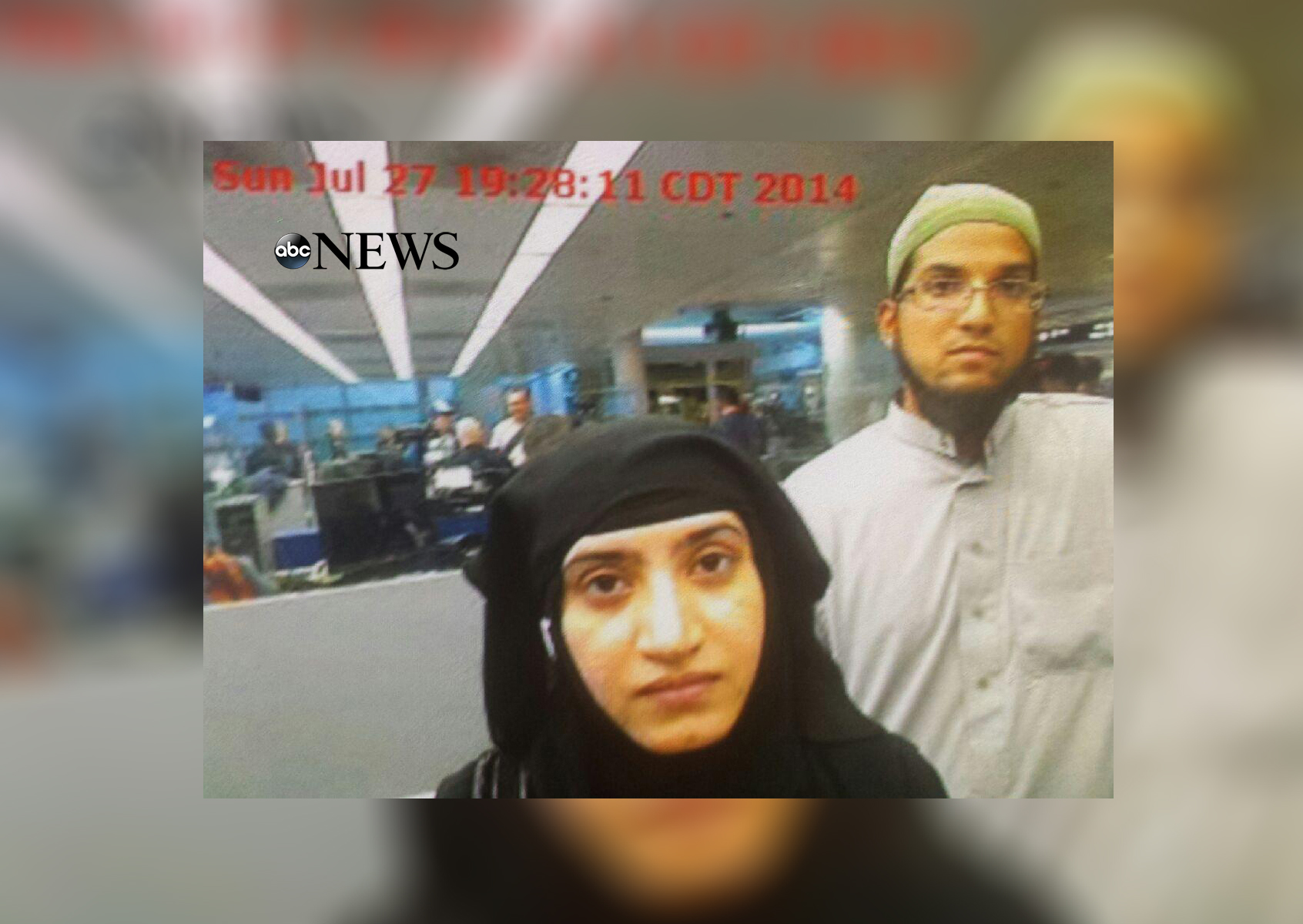San Bernardino: Ghost of American al-Qaeda Haunts Another US Terror Plot
FBI: Anwar al-Awlaki, killed in 2011, linked to San Bernardino shooter.
— -- An American drone strike ended the life of high-profile American al-Qaeda member Anwar al-Awlaki in late 2011, but newly-released court documents reveal his link to yet another domestic terror plot — the latest evidence of the cleric’s enduring, deadly legacy.
An FBI affidavit filed late Thursday described how San Bernardino shooter Syed Rizwan Farook allegedly radicalized his longtime friend and neighbor Enrique Marquez with al-Qaeda material, including fiery lectures from al-Awlaki in 2010 and 2011, months before the two purportedly plotted to launch terrorist attacks in southern California.
“In early 2011, Marquez continued to listen to additional lectures and materials by [al-Awlaki]," the FBI said, and later that year, Farook and Marquez pored over Inspire magazine, produced by al-Awlaki’s al-Qaeda affiliate in Yemen. The FBI said that in August 2011, Farook told Marquez he wanted to join al-Awlaki’s group, al-Qaeda in the Arabian Peninsula (AQAP).
The New Mexican–born al-Awlaki was killed in a CIA drone strike in Yemen in September 2011, but that didn’t stop Farook and Marquez from planning two terror attacks in California in the months after his death, according to federal officials — one targeting a local community college and the other a plot to hit a busy highway during rush hour.
Marquez and Farook got as far as buying weapons in late 2011 and early 2012 for the attack but their plots eventually fizzled out, the FBI said. Earlier this month, however, Farook and his wife-turned-accomplice, Tashfeen Malik, went on to kill 14 people in an attack on an office holiday party in San Bernardino. The FBI affidavit said that in the minutes after the attack, Malik pledged the couple's allegiance online to the leader of ISIS, a rival of al-Qaeda's in Syria and Iraq.

Before his death, al-Awlaki was linked to several attacks that targeted the U.S., including the 2009 Fort Hood massacre, the failed Detroit airline bomb plot that same year and a foiled plan to smuggle explosives aboard cargo flights headed to the U.S. in 2010.
But after his death, al-Awlaki’s lectures lived on online, inspiring new generations of would-be killers.
He was allegedly praised on Twitter by Dzhokhar Tsarnaev, one of the Boston Marathon bombers who, along with his brother, killed three people at the race in 2013 and injured more than 260 others. In the attack on a draw Mohammad cartoon contest in May this year, one of the shooters was found to have used an image of al-Awlaki as his avatar online. Authorities say writings about al-Awlaki were found with the possessions of Muhammad Abdulazeez, who killed five servicemen in Chattanooga later this summer.
Law enforcement officials have told ABC News that al-Awlaki’s materials are found often on the computers of those arrested on terror charges in the U.S. — dozens of them in the past few years.
“Awlaki is an individual whose preachings of violence and hate have shown up in many of the terrorist cases that we’ve brought,” John Carlin, the assistant attorney general for national security, told ABC News today. “He’s one of many individuals, but he’s certainly shown up in many of the cases that we’ve brought to date.”
Shortly after al-Awlaki’s death in September 2011, Gregory Johnsen, an expert on Yemen, AQAP’s base, asked, “What sort of impact will [al-Awlaki’s death] have on the so-called lone-wolf terrorist?”
“That is, those individuals, those often English-speaking individuals living in the West who seem to be inspired, if not encouraged to carry out attacks by al-Awlaki?” he said then. “And that is where al-Awlaki was a unique voice and someone that a group like al-Qaeda will have a difficult time replacing.”
In the years since, it appears al-Qaeda didn’t need to replace al-Awlaki after all, but only to make sure his lectures and hateful messages survive online for new listeners to find and, at their worst, enact.



